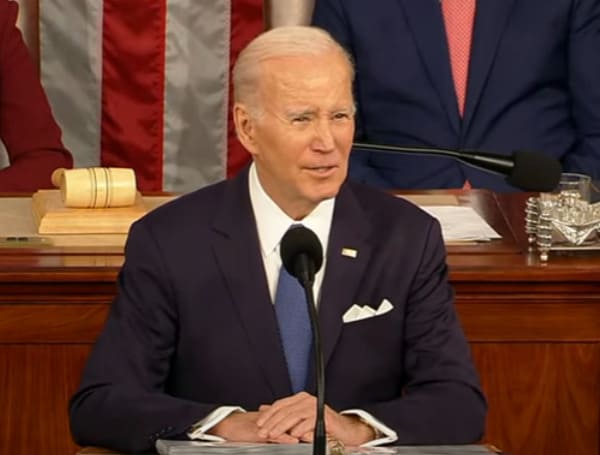The Biden administration has been approving state requests to use Medicaid funds to pay for individuals’ food, air conditioning, and rent as part of a push to address health problems related to housing and lifestyle, according to The Wall Street Journal.
Research suggests that access to healthy foods and stable housing can improve patients’ health and reduce healthcare visits and costs, according to the WSJ, and some Republican lawmakers appreciate that these programs give states more control over Medicaid funding.
Critics point to existing programs like the Supplemental Nutrition Assistance Program (SNAP), which already helps low-income people access food.
In the news: AOC Compares Christian Group’s Super Bowl Ads To ‘Fascism’
“This is really the first I’ve seen the federal government push food and air conditioners and other things as allowable. We already have the SNAP program,” Gary D. Alexander, head of the Medicaid and Health Safety Net Initiative for Paragon Health Institute, told the WSJ. “It seems like it’s blurring the lines.”
The Centers for Medicare and Medicaid Services (CMS) approved an $85 million project in Arkansas in November using Medicaid funds, which includes nutritional services for people aged 19 to 24 who are at high risk of poverty, were previously incarcerated, were in the foster care system or who are veterans, according to the WSJ. CMS also approved $1.1 billion in federal funds to address health-related social needs in Oregon, including short-term food assistance.
“We’re able to cover cooking classes and nutrition classes,” James Schroeder, interim director of the Oregon Health Authority, told the WSJ. “We can do up to six months of what we call ‘food and veggie RX.’ And up to six months of medically tailored meals.”
In the news: United States Warns Citizens To Leave Russia Immediately “Do Not Travel”
Medicaid is now paying for people’s air conditioning, air purification systems, and up to six months’ rent in several states, according to the WSJ.
Advocates for these programs, which some call “food as medicine,” believe they may save government programs money in the long run by addressing some of the root causes of health issues that lead to appointments and costly interventions.
“There needs to be a bigger emphasis on how do we [sic] start encouraging people to make good healthy choices,” Republican Kansas Sen. Roger Marshall, an obstetrician-gynecologist, told the WSJ. “And that budget-wise is going to save us money in the long term.”
Android Users, Click Here To Download The Free Press App And Never Miss A Story. Follow Us On Facebook Here Or Twitter Here. Signup for our free newsletter by clicking here.

